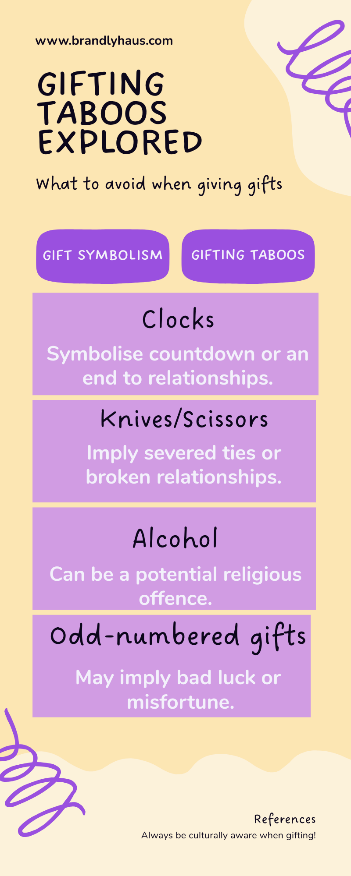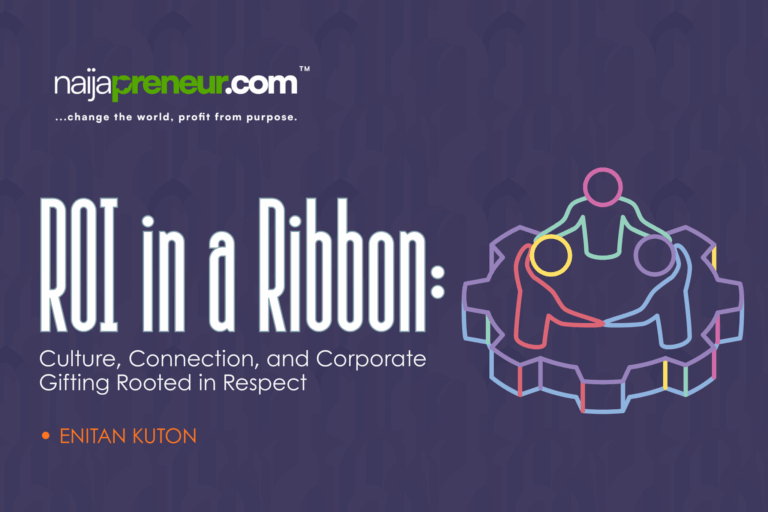Today, in a world where ads flash by in seconds and screens grow colder by the click, gifting remains a timeless language that still speaks to the heart. One well-chosen gift, delivered with thought and rooted in meaning-can do what a hundred digital impressions cannot: spark emotion, nurture trust, and open doors.
In our hyper-connected, yet emotionally distant marketplace, corporate gifting has re-emerged, not as a soft, feel-good gesture, but as a bold, strategic tool. And yet, many brands still treat it as an afterthought.
It’s time to return to our roots. To reposition gifting as a core pillar of marketing, one that reflects intentionality, culture, and business wisdom.
Gifting is Universal, Emotional, and Strategic
Gift-giving, at its core, is an expression of intention, thoughtfulness, appreciation, or goodwill. Whether it’s a tangible item, an experience, or a gesture, the act is loaded with symbolic value. Food, drink, and sleep may be universally acknowledged languages, but gifting belongs in that sacred category, too. Especially across African cultures, gifting is a revered practice; a language of respect, status, and relationship-building. Yet, somewhere along the line, the marketing world began to commodify and oversimplify it- logo on a mug, a branded calendar, missing the emotional power embedded in well-chosen gifts.
Not All Gifts Are Welcome: Cultural Intelligence in Gifting
In Nigeria and other African countries, rejecting a gift is viewed not just as a refusal, but as an insult. This underscores the cultural weight gifting holds; it must be appropriate, intentional, and personalised. Personal or overly intimate gifts are often frowned upon in professional contexts. Add to that corporate policies that dictate what kind of gifts employees can receive, and you have a landscape that requires nuance and knowledge; some of Nigeria’s largest companies do not accept non-branded gifts, while others do not accept any gift worth more than #50,000, and others must declare the gift to the HR office. Gifting isn’t one-size-fits-all. It never was, and brands that ignore this truth end up wasting budgets and missing golden opportunities to truly connect.
Gifting in History: A Weapon and a Window
Let’s rewind to the pre-colonial era. During the transatlantic slave trade, European merchants used gifting as a tool of influence in what is now Nigeria. Gin, beads, textiles, and firearms were offered to local chiefs- not out of kindness, but as a calculated move to curry favour, seal exploitative deals, and create perceived alliances. These “gifts” manipulated power dynamics, seducing local leaders into unequal partnerships. Even then, gifting wasn’t just symbolic; it was strategic. Today’s brands must learn from history: gifting can be a force for good or a tool of exploitation; the difference lies in intent.
The Business of Bonding: Why Gifting Deserves a Seat at the Strategy Table
While there’s no official valuation for the corporate gifting market in Nigeria, it is undeniably a multibillion-naira industry sitting at the intersection of marketing, merchandise, and communications. With advertising budgets climbing and digital gift cards on the rise, this sector is experiencing steady, undeniable growth.
From the buzzing shops in Idumota to the rise of online vendors curating bespoke gift boxes and souvenirs, the signs are clear: demand is increasing. More sellers are entering the space, and more businesses are prioritising thoughtful gifting. When we factor in branded merchandise, corporate gift sets, employee reward programs, and customer loyalty incentives, the industry’s value likely runs into the tens, if not hundreds, of billions of naira annually.
Yet despite this momentum, its full strategic potential remains largely untapped.
Corporate gifting isn’t an expense; it’s an investment in relationships. Forrester Research found that effective gifting can boost customer lifetime value by up to 35%. In 2021 alone, the U.S. corporate gifting market was worth $242 billion, with 60% of businesses planning to increase budgets. The numbers don’t lie. But numbers alone don’t move people; gifts do, and not just any gift. The perfect gift reflects your brand, understands your audience, and creates a story worth retelling.
The Psychology of Gift Selection Research from the University of California reveals four core motivations behind gifts:
- Gifts that reflect the giver’s identity.
- Gifts that reflect the giver’s knowledge of the recipient.
- Gifts tied to a specific occasion.
- Gifts that carry layered emotional or symbolic meaning.
A successful gifting strategy incorporates all four, ensuring that gifts are not just received but remembered.
G.I.F.T.E.D. Framework by Enitan Kuton – A Strategic Blueprint for Corporate Gifting
G – Gauge the Recipient
Identify who you’re gifting. Is it a high-net-worth individual, a loyal client, a dedicated employee, or a potential lead? The profile of your recipient informs the tone, value, and type of gift. A luxury watch may wow a C-suite executive, but it feels wildly out of place for an intern
I – Inspire with Meaning
Choose gifts that resonate. Avoid the generic. Go for items that feel thoughtful, be it artisanal Figurines, smart notebooks, eco-friendly packages, or luxury tech. Avoid clutter. Think sentiment, not just logo visibility.
F – Frame the Context
Where and how the gift is delivered shapes perception. A surprise doorstep drop, an elegant handover at a gala, or a subtle touchpoint in a welcome pack- all tell different stories.
T – Time it Right and Track the outcome
Go beyond festive seasons. Try client anniversaries, contract wins, onboarding moments, or just unexpected “thinking-of-you” days. Surprise fuels delight. Track the Outcome. Gifting isn’t just an act; it’s a strategy. Follow up, measure engagement. Did it spark a sale? Win a client? Make someone stay? Insight drives refinement.
E – Establish the Intent
Clarify the “why.” Are you aiming to increase loyalty, build partnerships, boost morale, or attract leads? Let the intent shape the presentation and the purpose.
D – Design the Experience
The packaging is just as important as the gift itself. Add thoughtful touches like handwritten notes or QR codes linking to personalised videos. With Lagos State’s recent ban on nylon bags, now is the perfect time to opt for eco-friendly wrapping. Think of the unboxing as a storytelling moment, each layer revealing more of the experience you’ve carefully curated.
Cultural Sensitivity and Gifting Taboos
Africa’s cultural terrain is complex. In Nigeria alone, what’s acceptable in the North might be taboo in the South. Gifts like clocks, knives, or items in odd numbers can carry ominous meanings; after all, we are a superstitious nation. Alcohol may be inappropriate for certain religious groups. Personal gifts in professional settings can backfire. Bottom line: know your audience. Cultural ignorance in gifting isn’t just bad etiquette, it’s bad business.
Infographic -What Not to Gift in Nigeria

Final Thoughts
Gifting is not a budget line item. It’s a storytelling device. A well-thought-out gift can open doors before a pitch is made, nurture loyalty that mainstream advertising can’t buy, and reinforce your brand values in ways no social media campaign ever could. But only if it’s done with empathy, insight, and strategy.
Before your next campaign, ask: Does this gift reflect who we are as a brand? Does it respect the recipients as they are? Does it adhere to the G.I.F.T.E.D.™ Framework?
Because in this noisy world, the brands that stay remembered are not the loudest, they’re the most thoughtful.
For culturally and ethically nuanced corporate and promotional gifts in Nigeria, visit: http://www.brandlyhaus.com


